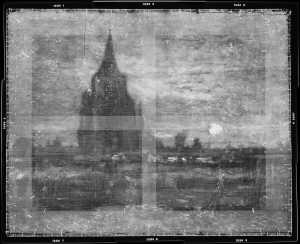
Specifications
| Title | Poplars near Nuenen |
|---|---|
| Material and technique | Oil on canvas |
| Object type |
Painting
> Painting
> Two-dimensional object
> Art object
|
| Location | This object is in storage |
| Dimensions |
Height 78 cm Width 98 cm |
|---|---|
| Artists |
Painter:
Vincent van Gogh
|
| Accession number | 1239 (MK) |
| Credits | Gift 26 Rotterdam friends of the arts, 1903 |
| Department | Modern Art |
| Acquisition date | 1903 |
| Creation date | in 1885 |
| Internal exhibitions |
Impressionisme: Een schone kijk (1992) The Collection Enriched (2011) De collectie als tijdmachine (2017) |
| External exhibitions |
Van Gogh aan het werk (2013) TEFAF 2022 (2022) Boijmans bij de Buren - Meesterlijk! (2019) |
| Material | |
| Object | |
| Geographical origin | The Netherlands > Western Europe > Europe |
| Place of manufacture | Nuenen > North Brabant > The Netherlands > Western Europe > Europe |
All about the artist
Vincent van Gogh
Zundert 1853 - Auvers-sur-Oise 1890
Vincent van Gogh was the son of a minister and a preacher himself for a while. After he was dismissed in 1880 from his position as preacher in the poor mine...
Bekijk het volledige profiel
























